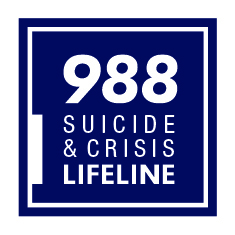Crisis Resources
If you are in crisis or having suicidal thoughts, there is help available and things can get better. Please reach out.
CPS staff is available to provide consultation and assistance in crisis or emergency situations involving MSU students.
In the event of an crisis during our office hours, M-F 8am-5pm, call or come into the office and special accommodations will be made to allow the student to be seen as quickly as is possible. Examples of such a crisis or emergency include:
- Someone who is imminently at risk of hurting themselves or someone else
- Someone who has experienced a recent trauma or loss (e.g. assault, death)
- Someone who feels they cannot cope/control their thoughts/emotions
When you call or come in, the receptionist may ask you some basic questions to assess the severity of your concern and to determine when someone is available to see you. Rest assured that you will be seen as soon as it is possible.
In the event of an emergency after hours, utilize the resource numbers below. If you live on campus, you can also utilize University Student Housing staff, or Campus Police at 911.
CPS staff is also available to MSU faculty and staff to consult about crisis situations or any concerns they may have about a particular student. Visit our faculty guide to learn more.
Resources
| Resource | Number |
|---|---|
| Suicide & Crisis Lifeline (24-hour, Call, text, or chat) | 988 |
| Help Center (Bozeman, 24-hour) | 406-586-3333 |
| University Police | 406-994-2121 or 911 |
| Bozeman Deaconess Emergency Department | 406-585-1000 |
| MSU Counseling & Psychological Services (M-F, 8 a.m.–5 p.m.) | 406-994-4531 |
| National Crisis Text Line | Text 741741 |
Sexual Assault & Relationship Violence Resources
|
Campus Civil Rights (sexual assault, dating violence, stalking, discrimination) |
(406) 994-1568 |
Worried about a friend?
|
Dean of Students Office |
406-994-2826 CARE Referal Form |
|
Counseling & Psychological Services |
406-994-4531 |
Things to Know if You Feel Suicidal
There is help
Even though it may be hard to believe right now, there are friends, family, and professionals who care about you and are willing to help. They aren’t too busy. You aren’t a burden. They care and your safety is important to them. You matter.
Things will probably get better
It may be hard to realize it now, but your situation will very likely get better. Try to remember that things won’t stay the same as they are now. People who are suicidal often feel very hopeless, so much so that it can paint a very bleak vision of the future. With time and help from others, crisis situations or life circumstances can, and usually do, get better.
This is probably temporary
Nearly every survivor of a suicidal crisis or suicide attempt is glad that they lived through it or reached out for help before they attempted. Most suicidal people don’t truly want to die—they just want to be free from whatever situation or feeling is contributing to suicidal thoughts. People with thoughts of suicide often feel that it’s their only option, but with time and help from others, better options become available.
Avoid alcohol/drugs
While it may be tempting to cope with drinking or drugs, or to go out and be social at bars/parties, using substances when you’re in crisis or feeling suicidal isn’t a good idea because it clouds your thinking and judgment. Stick to more helpful ways of coping/socializing. If you are in recovery and avoiding use is difficult right now, reach out to one of the professional resources provided or to a sponsor.
What you can do right now
In addition to using the above resources, here is a short list of things that can keep you safe or calm you down:
- Call someone-Call anyone who will listen, or just call to catch up and chat with a friend.
- Make your environment safe - Remove anything that you could use to hurt or kill yourself. Ask Housing Staff, a friend, or UPD to hold onto those items for you.
- Distract yourself - Read a book, watch YouTube videos, walk around the block, get a snack, call a friend, anything that will help get your mind off your worries. Click here for 100 options
- Increase your safety - Ask a friend to stay with you, stay with a friend, or consider going to the ER or Hope House for a safe place to stay.
- If these strategies are not available or useful, reach out to one of the professional resources provided.

